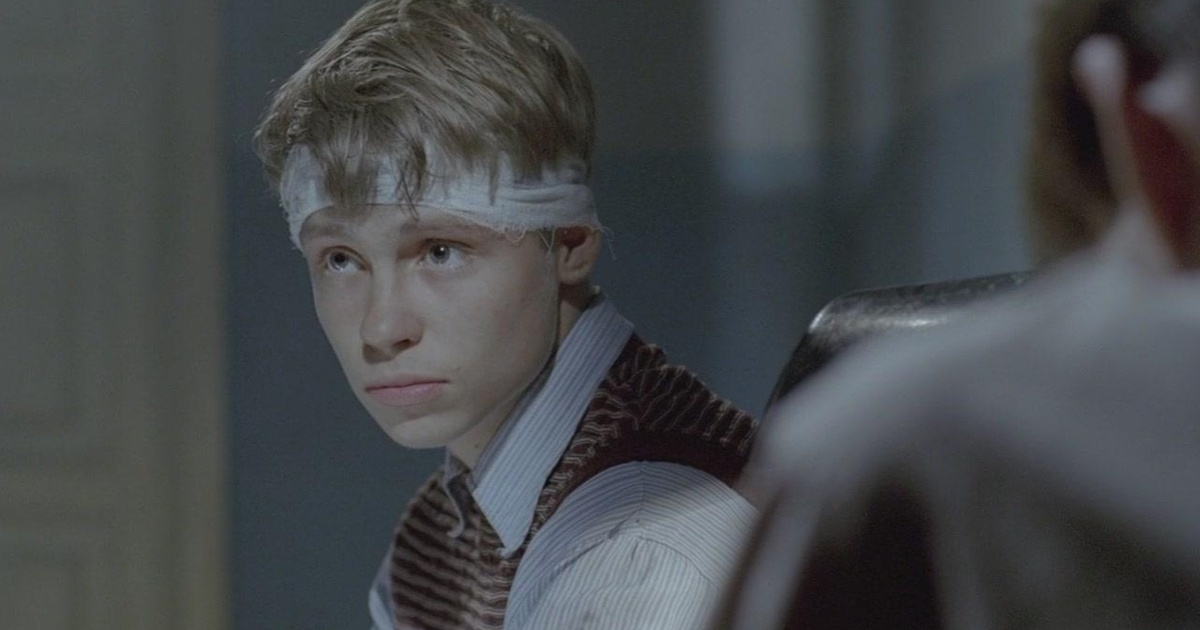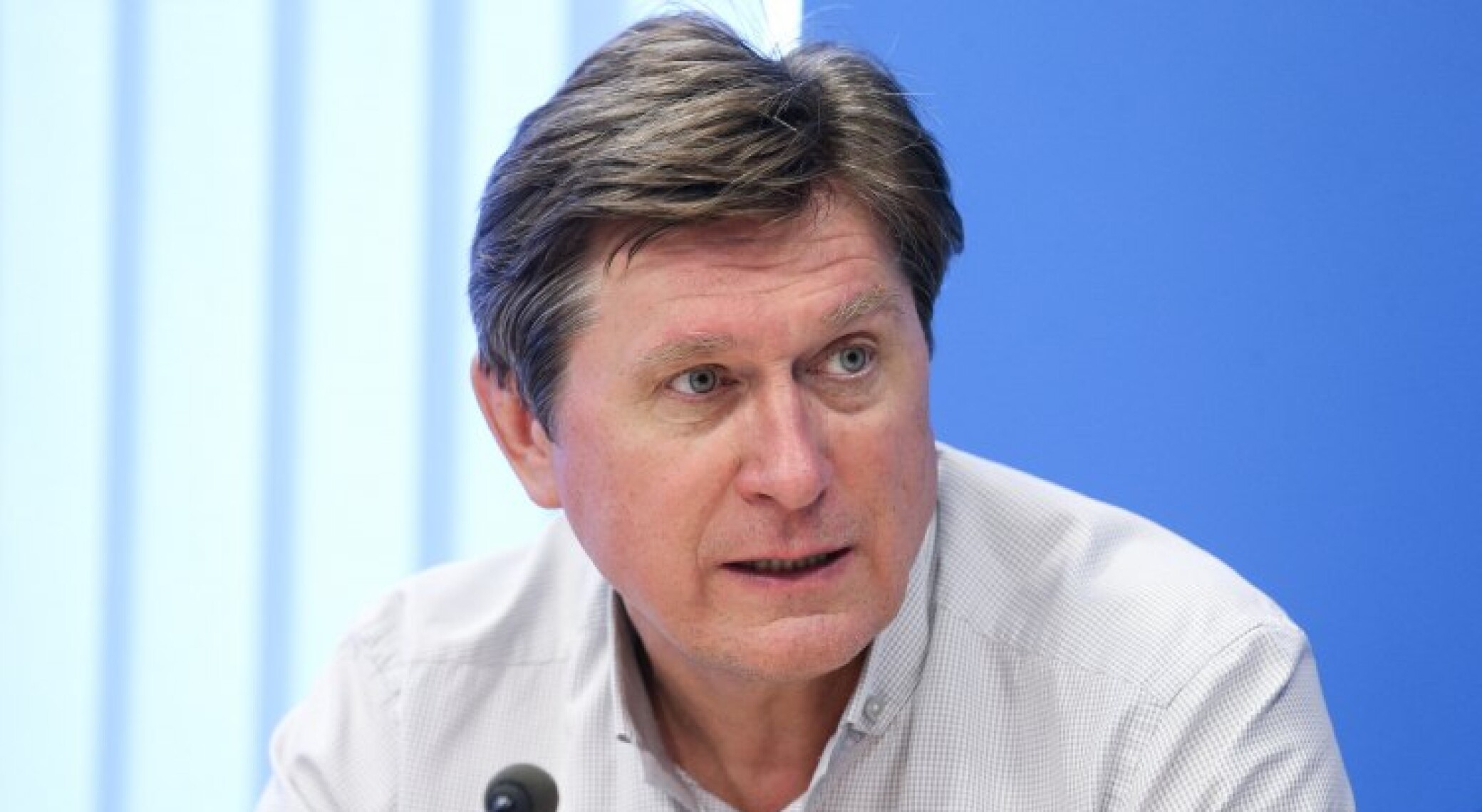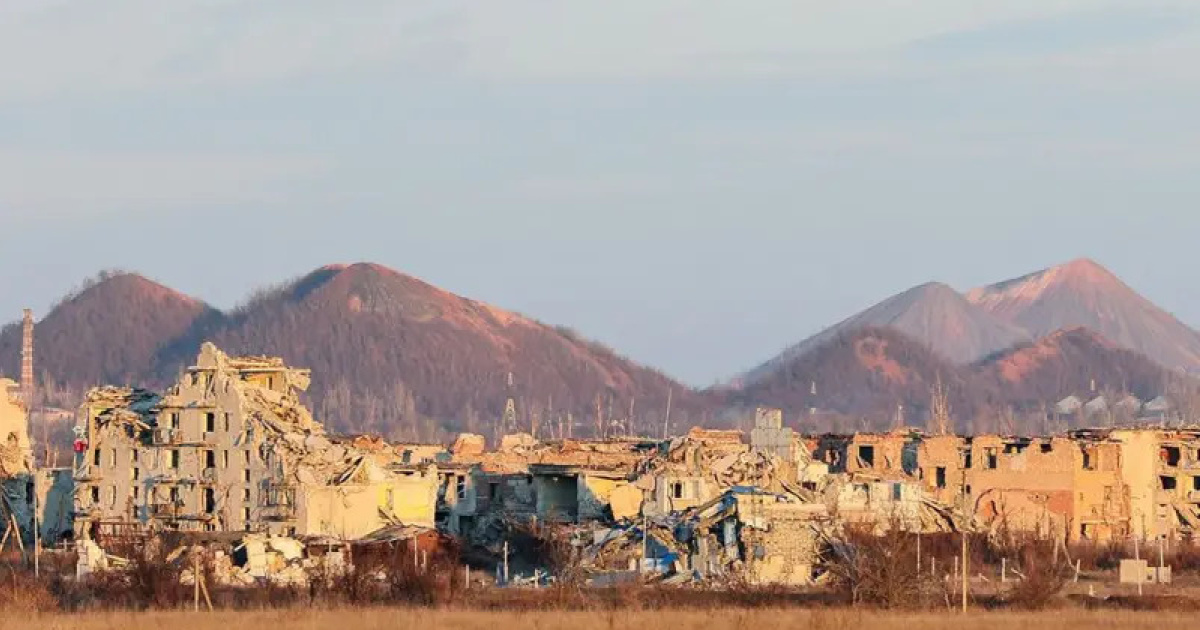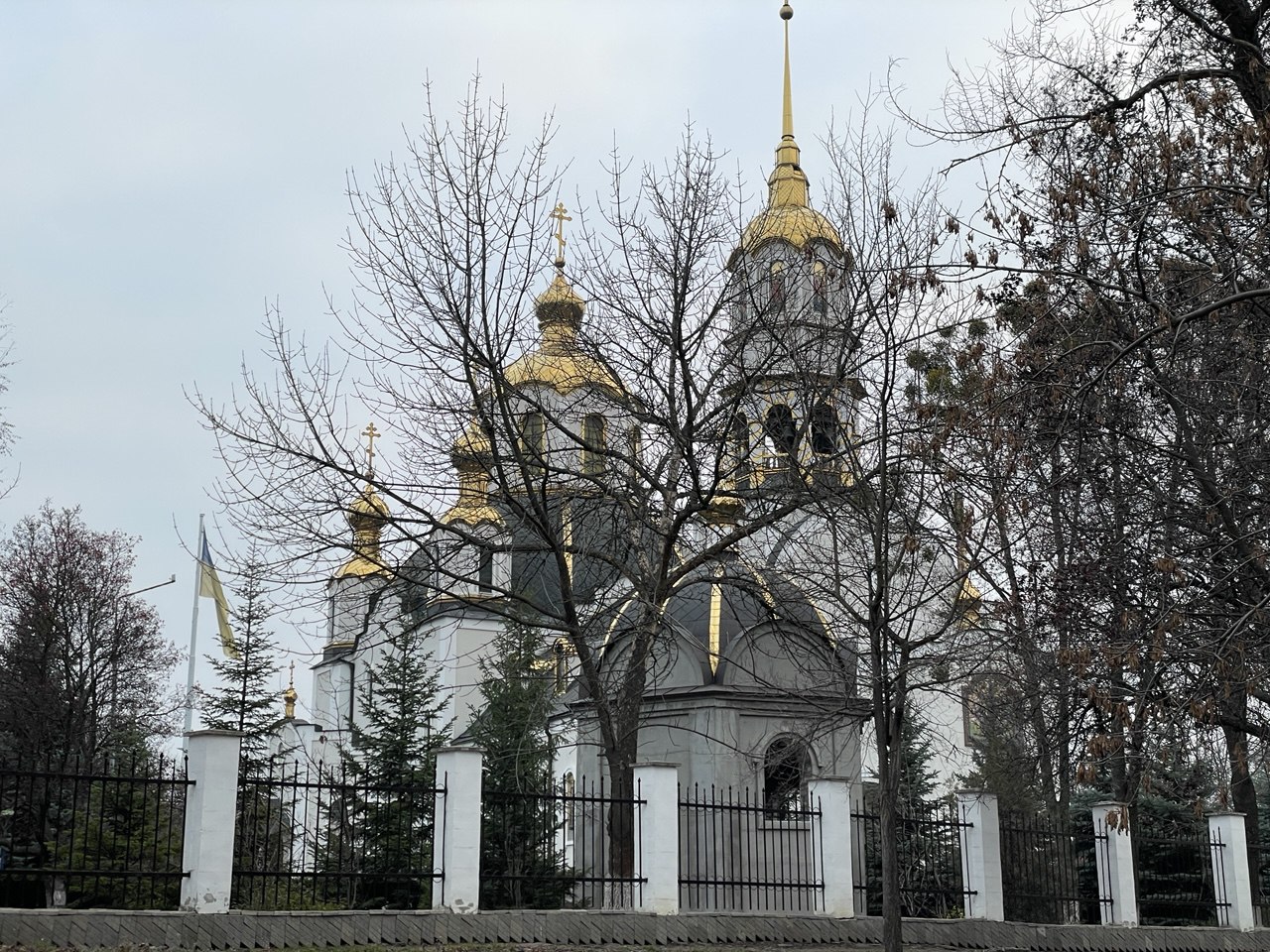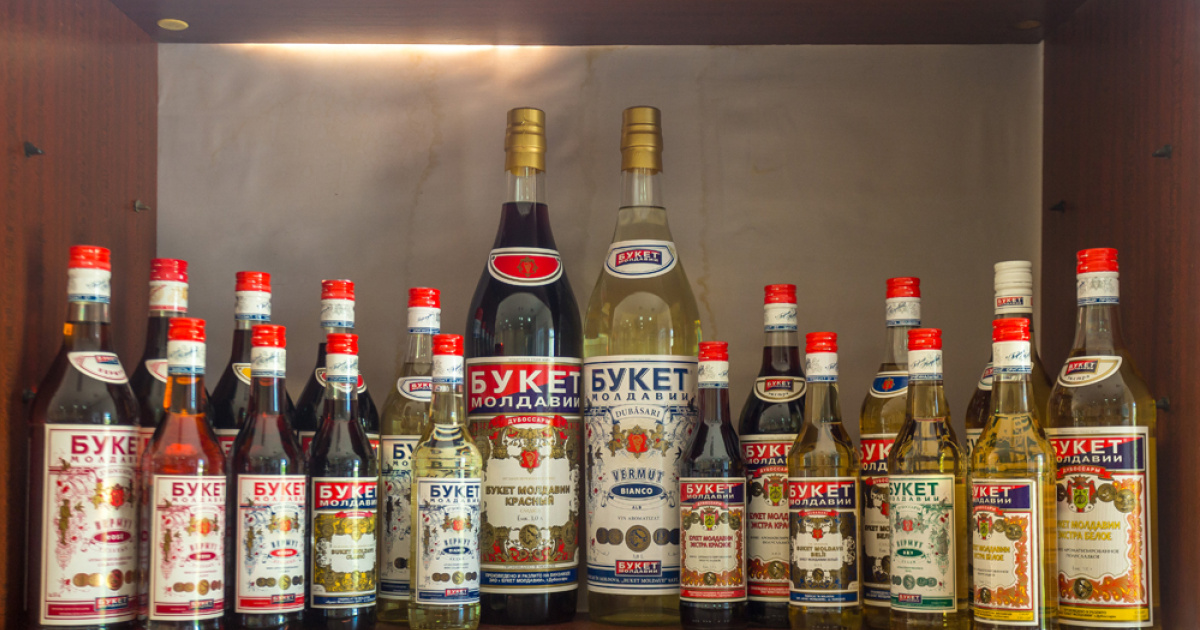
On October 5, Moldova’s Central Election Commission approved the results of the parliamentary elections. President Maia Sandu’s party, PAS, received 50.20% of the votes; the pro-russian “Patriotic Bloc” — 24.17%; the “Alternative” bloc — 7.96%; “Our Party” — 6.20%; and the “Democracy at Home” party — 5.62%. The rest did not pass the electoral threshold. A total of 52.24% of voters participated in the election.
The pro-European “Action and Solidarity” (PAS) won 55 seats in the country’s parliament, the “Patriotic Bloc” of socialists, communists, and the “Future of Moldova” party — 26, the “Alternative” bloc — 8, and “Our Party” of Renato Usatii and Vasilii Costiuc’s “Democracy at Home” party — 6 each.
However, the number of political forces entering parliament may decrease. The CEC reviewed complaints against “Democracy at Home” and concluded that there are grounds to annul its registration for the parliamentary elections. Allegedly, “Democracy at Home” conducted a “coordinated campaign on TikTok” and did not declare its expenses for social media promotion. Now, the decision to cancel or confirm the results rests with the Constitutional Court.
The geopolitical confrontation between the EU and russia that raged during the parliamentary elections ended not only with the victory of Sandu and the European Union but also with the further polarization of Moldovan society amid deepening internal problems.
The arena of confrontation...
Anyone observing the election campaign from the outside could draw one clear conclusion: Moldova has become an arena of confrontation between the EU and russia. However, within the country itself, this view was perceived as somewhat simplistic.
The fact is that the polarization of Moldovan society between those oriented toward Europe and those looking toward moscow has existed throughout all of Moldova’s independence. Traditionally, this looked like a standoff between the “russian gas pipeline” and the European Union’s promises to bring Moldova into its union, reinforced by loans and grants.
It is enough to recall that in 2009, then head of the Moldovan state, Vladimir Voronin, in order to overcome a severe political crisis caused by russia’s pressure, turned to the EU for help. It should be reminded that it was under the communist Voronin, in 2004, that Moldova’s movement toward the EU began.
The rise of Maia Sandu to the presidential seat in 2020, followed by the resounding victory of her PAS party in the 2021 elections, became a clear sign of the electorate’s pro-European sentiment. From that moment, Moldova’s accession to the European Union acquired the status of state policy.
Russia’s aggression against Ukraine finally solidified this trend and began accelerating the country’s movement toward Europe. In 2022, Kyiv and Chisinau submitted official applications for EU membership. And already in June of that same year, both countries were granted candidate status for joining the bloc. The grand finale of this European course came on February 7, 2024, when official negotiations on Moldova’s accession to the European Union began.
Brussels’ decision to include Moldova in the accelerated path of European integration was converted by the Moldovan authorities to their advantage. The president’s team did everything possible to ensure that Maia Sandu and PAS were the ones associated with progress on Moldova’s path to the EU. As of today, Chisinau and Brussels have completed the screening — the assessment of Moldovan legislation’s compliance with European standards — and are beginning to open negotiation clusters.
The faster Sandu’s government moved toward Europe, the further Moldova distanced itself from moscow. At first, softly, without making unfriendly gestures, but after russia’s aggression against Ukraine, Chisinau shifted from walking to running.
At the same time, the russian federation began rapidly losing its positions in Moldova. Many Moldovan politicians who, before the war, had advocated for a multi-vector policy and did not hide their sympathies for the kremlin, began to actively criticize it, condemning the aggression against Ukraine.
The appeal of the russian gas pipeline also devalued after Ukraine stopped the transit of russian gas through its territory. Both the Transnistrian region, which was left without russian gas, and Moldova as a whole, due to the shortage of electricity that Tiraspol used to generate for Chisinau from russian gas, were affected. Thus ended the “era” of russia subsidizing Moldova’s economy through cheap energy resources.
It must be said that moscow itself did nothing to help its “beloved” Transnistria. Against the backdrop of russia’s passivity, the European Commission allocated 64 million euros to the republic to overcome the energy crisis, 20 million of which went toward purchasing gas for Transnistria.
As a result, Moldova freed itself from russian gas and is now fully integrated into the EU energy system. Today, Moldova purchases energy resources on the European market. True, due to import dependence and global prices, gas and electricity tariffs in the country have risen two to three times, and according to EU estimates, more than 30% of the population lives in “energy poverty” — unable to pay for heating. However, the fact remains: thanks to direct European financial injections, most people did not feel the negative effects of the energy crisis.
The further Moldova moved away from moscow, the stronger the presence of European countries became there. Germany and traditionally Romania have shown interest in Chișinău. France is also showing great interest, particularly in Moldova’s agriculture — especially in winemaking and cheesemaking.
Interestingly, it was putin who opened Moldova to France when, during the final match of the 2018 FIFA World Cup held in russia, he introduced Emmanuel Macron to the then president of the country, Igor Dodon. The rise to power of Maia Sandu elevated relations to a higher level, making Paris one of Moldova’s key partners in the EU.
In short, the European Union has firmly “entered” Moldova. As part of the European integration process, a mission of European advisers now works legally within the structures of power. They are present in the offices of the president and government, in parliament, and in other state institutions. Last summer, Chisinau hosted an unprecedented EU–Moldova summit, attended by European Council President Antonio Costa and European Commission President Ursula von der Leyen. They reaffirmed their commitment to the “rapid advancement of Moldova’s EU accession process”. The outcome was the allocation of the first tranche from the Growth Plan — €270 million. In total, the plan provides for funding of €1.9 billion.
The EU’s decision to allocate funds appeared especially symbolic against the backdrop of the approaching parliamentary elections scheduled for September 28. To support Maia Sandu and her political force, a “Weimar landing party” arrived in Chisinau, consisting of French President Emmanuel Macron, German Chancellor Friedrich Merz, and Polish Prime Minister Donald Tusk. The visit coincided with the republic’s Independence Day and... the start of the election campaign. This visit further strengthened Maia Sandu’s position both on the international stage and among voters supporting the pro-European course.
In the EU, it was no secret that all these “gifts” were made to Sandu for one purpose — to prevent a change of power in Chisinau. The ruling party unequivocally supports Ukraine, is in deep conflict with moscow, and causes the EU no problems on any geopolitical issues. Therefore, Maia Sandu received a full carte blanche from Brussels for victory. It even turned a blind eye to actions by the authorities that did not align with the values Europe usually calls democratic. However, the justification for this was the defense of democracy against hybrid russian expansion. This very theme, along with accelerated European integration, became the main tools for mobilizing voters — all the more so since moscow, after its defeat in the presidential elections, did not abandon attempts to regain influence in Moldova.
Kremlin “games”…
For a long time, the kremlin’s favorite was former president and socialist Igor Dodon. However, after his defeat in the 2020 presidential elections and the opening of a corruption case, the politician’s ratings began to fall sharply. After the war began, in the spring of 2022, the socialists even tried to bring people into the streets, demanding the resumption of negotiations with moscow. However, the protest quickly “fizzled out”.
The kremlin was dissatisfied with Dodon’s passivity and began looking for a replacement. Russian handlers placed their new bet on fugitive oligarch Ilan Shor. He is a well-known figure not only in Moldova but also beyond its borders. In 2019, he left the republic because he faced a prison sentence for involvement in a scheme that illegally withdrew $1 billion from three local banks in 2014. As a result, in 2023, the politician was sentenced in absentia by a Moldovan court to 15 years in prison.
Having first settled in Israel and then in moscow, Ilan Shor set himself the goal of removing President Maia Sandu from power and remotely developed an effective political operation in Moldova. He openly opposed European integration and advocated turning Chisinau away from the EU toward the Eurasian Economic Union.
In the spring of 2023, Ilan Shor managed to have previously unknown 37-year-old Evghenia Gutul elected head of the Gagauz autonomy. Shor created an entire lineup of parties in Moldova tailored to himself: “Shor”, “Chance”, “Renaissance” and “Alternative Force for Saving Moldova”. However, all these political projects were banned by the authorities under the pretext of posing a threat to national security.
In April 2024, Shor established the “Victory” bloc in moscow, but both the bloc and its main presidential candidate, Vasile Bolea, were barred from participating in the elections by Moldovan authorities. This did not stop the fugitive Moldovan oligarch. After Bolea was removed from the race, Shor shifted his support to several other politicians from the list of presidential contenders. The media, in particular, mentioned Vasile Tarlev and Victoria Furtuna.
However, Shor’s main “achievement” was the creation of an “electoral network”, which functioned as a pyramid scheme of illegal financing and voter bribery. This issue made major headlines in 2024 during the presidential elections and the referendum on European integration. People were actively recruited through numerous Telegram chatbots, offered financial rewards to join the activities of the “Victory” bloc: campaigning against the EU and Maia Sandu, participating in anti-government street protests, and so on.
The network became so vast that law enforcement agencies were unable to cope with it. Despite reports from security forces about blocking dozens of Telegram channels linked to Shor and his political structures, new ones immediately appeared, and anyone could become part of the “network” in just a few clicks. Shor denied all accusations, calling the authorities’ actions an “absurd spectacle” and “an attempt to distract attention from real problems: poverty, corruption, and police arbitrariness”.
In the 2025 parliamentary elections, moscow once again resorted to its proven methods. According to Sandu, russia allocated at least €100 million in cryptocurrency to form a pro-russian majority in parliament and undermine Moldova’s sovereignty.
Once again, moscow’s destabilizing activity in Chisinau was linked to Ilan Shor and his associates. Publicly, in russia, Shor was giving interviews, calling himself “the future prime minister of Moldova” and speaking about “a unified economic and foreign policy space with russia, and a common security policy”. Privately — as was claimed, for instance, in a BBC investigation — he allegedly controlled a network of “troll factories”.
An investigation by the newspaper Ziarul de Garda, whose journalists worked undercover with Shor’s activists, also uncovered paid protests, illegal payments, and a coordinated disinformation campaign — all of it part of russia’s hybrid operations in Moldova.
Nevertheless, the scale of Shor’s own network was, most likely, deliberately exaggerated by the authorities: the criminal cases opened in connection with the protests significantly reduced the opportunities for such schemes and largely suppressed Shor’s networks within the country.
In turn, the authorities’ actions against Shor’s allies were distinctly demonstrative. In early August, the sitting head of Gagauzia, Evghenia Gutsul, who was supposed to lead the list of candidates from the “Victory” bloc in the parliamentary elections, was sentenced to seven years in prison for illegal financing. The bloc itself was denied registration.
In addition, the police maintained constant pressure on Shor’s associates through searches, accusing protest activists of electoral corruption.
On suspicion of illegal financing, literally on the eve of election day, the authorities removed from the ballot the party Moldova Mare (“Great Moldova”) associated with the fugitive oligarch, led by Victoria Furtuna. The same fate befell the Heart of Moldova party of former Gagauzia bashkan Irina Vlah, whose political force was part of Igor Dodon’s “Patriotic Bloc”.
On the eve of election day, the theme of russia–West confrontation reached its peak. Of course, these were not the first elections colored by alarmism and geopolitics. The geopolitical tone of the elections was set from the very beginning by President Maia Sandu, who stated that the choice would be made “not just between East and West, but between peace and war”.
According to her interpretation, peace meant a confident victory for the current ruling party Action and Solidarity (PAS) and, accordingly, the continuation of the country’s movement toward the EU. War, by her logic, would follow an opposition victory, as the opposition was ready, to varying degrees, to restore relations with russia.
In her address to the nation, she described in detail what such a scenario could lead to: “Europe will stop at the border with Moldova. European funds will be frozen along the Prut River (on the Romanian border). Freedom of movement may end, and our land could become a springboard for russian troops to penetrate the Odesa oblast. The Transnistrian region will be destabilized. We must keep Moldova peaceful, free from war and from russia’s attempts to attack or destabilize other states”, - the head of state concluded.
On election day, September 28, she published five video messages on social media, calling on citizens to come to the polling stations and vote against the war.
In the pro-russian “Patriotic Bloc” — just like in PAS — the campaign also made active use of “You’ll get peace with us, and war with them” rhetoric. But the theses and arguments were directly opposite. The leader of the bloc, former president Igor Dodon, tried to frighten voters: “If PAS remains in power, the Soros people will force Sandu to attack Transnistria together with Zelensky and open a second front there — in support of Ukraine and against russia”, - adding that “a similar second front scenario was already tried in Georgia, but it failed, and now it’s Moldova’s turn”.
Overall, alarmist rhetoric largely played into the hands of the Action and Solidarity party (PAS), which hoped to use geopolitical themes to overshadow people’s everyday problems.
The pre-election landscape…
Up until the announcement of the final results, PAS, it seems, was not completely confident that it would once again secure a single-party majority. Sociological surveys offered varying forecasts. However, the vast majority of them indicated that Sandu’s party would not gain enough votes to independently form a majority in parliament. The polls also showed that, besides PAS, three other parties had a chance to pass the electoral threshold: former president Dodon’s “Patriotic Bloc”, Renato Usatîi’s “Our Party”, and the “Alternative” bloc, led by Chisinau mayor Ion Ceban and the 2024 presidential candidate Alexandr Stoianoglo. At the same time, surveys placed PAS and the “Patriotic Bloc” in the top two positions.
On the eve of the elections, sociologists pointed out the high percentage of undecided voters: at the beginning of September, they made up 30%. In addition, votes from the diaspora were not included in the polls, which made any attempt to predict the result even more difficult.
In 2021, the Action and Solidarity party (PAS) managed to win the parliamentary elections and form a government on its own — not so much through pro-European slogans, but by promising to address Moldova’s key domestic issues. The fight against corruption, an independent judiciary, a strong economy, and efficient public administration — these were the first four of the 13 main promises outlined in PAS’s program.
However, after four years, most of Sandu’s party’s promises remained on paper. The “major purge” and triumph of justice that PAS had promised never took place. Not a single prosecutor, judge, or politician tainted by corruption was held accountable. The government’s anti-corruption image was also undermined by scandals surrounding lucrative tenders won by relatives of PAS deputies.
There were also problems with judicial independence. A scandalous example was the appointment of new judges to the Constitutional Court. The authorities not only rushed to fill the seats before the parliamentary elections but also appointed individuals who had previously been members of PAS.
The economic situation was even worse. According to the National Bureau of Statistics, Moldova’s GDP growth in 2024 amounted to only 0.1%. A third of Moldovans found themselves below the poverty line. Consumer prices rose by more than 60%, household gas prices tripled, and electricity prices doubled. At the same time, real estate prices and the number of luxury cars in Chisinau reached record highs. The growing social tension was particularly visible in rural areas.
Since Sandu’s party had little to show voters domestically, PAS strategists focused on geopolitical issues: Sandu’s achievements in European integration and the protection of the country from hybrid russian aggression under the slogan “If it’s not us, then it will be putin and war”. And it must be said — the gamble paid off. Many who had become disillusioned with PAS over the past four years voted for it again, simply to keep the country’s movement toward Europe from stopping.
The ruling party did not shy away from using administrative resources. Long before the start of the campaign, the country was “decorated” with billboards made in PAS colors, listing the party’s achievements. Media outlets that expressed a different point of view (or even simply did not support the government) were shut down.
Among PAS’s tools was also the use of courts to remove opponents from the elections at the very last moment before voting day. Interestingly, however, these parties still remained on the ballots, which meant that votes cast for them would simply “disappear”. This happened to the party Moldova Mare (“Great Moldova”) led by Victoria Furtuna, which received about 70,000 votes.
The ruling party placed particular emphasis on organizing elections abroad. In 2024, during the presidential election and the referendum on Moldova’s accession to the EU, it was precisely the diaspora votes that allowed Sandu to defeat her opponent Alexandr Stoianoglo in the second round. This time, nearly one-third more polling stations were opened abroad than in 2024 — 301 in 42 countries. In russia, as in 2024, only two polling stations operated.
In Transnistria, compared to the 2024 presidential elections, the number of polling stations was cut in half — 12 instead of 31, with five of them relocated deeper into the country. In September, due to repairs, car traffic was restricted on six out of seven bridges connecting Transnistria with Moldova. This approach by the Moldovan authorities essentially turned the region into an electoral ghetto, which could become a serious obstacle to its future reintegration.
It must be said that Moldova’s European partners sometimes simply turned a blind eye to Chisinau’s “mischief”, acting on the principle: “friends get everything, enemies get the law”. For more than 30 years, elections in Moldova had been competitive precisely because European officials, institutions, and organizations acted as arbiters. Now, however, they took the side of Sandu’s party — which ultimately had a significant impact on the final result.
The main competitor of Sandu’s party in the parliamentary elections was the pro-russian “Patriotic Bloc”, led by former president Igor Dodon. The coalition included the Party of Socialists of the Republic of Moldova (PSRM) of Igor Dodon, the Party of Communists of the Republic of Moldova (PCRM) led by former president Vladimir Voronin, the “Future of Moldova” party led by former prime minister Vasile Tarlev, and “Heart of Moldova”, founded by former Gagauzia bashkan Irina Vlah. A few days before the election, a court in Chisinau, at the request of the Ministry of Justice, suspended Irina Vlah’s party, and just a day before voting, suspecting it of violating financing rules, the Central Election Commission of Moldova removed it from the race.
Despite the government’s accusations of being pro-russian, the “Patriotic Bloc” disagreed with this characterization. They claimed to advocate for Moldova to become “a bridge of cooperation between the EU, russia, China, and the Turkic world”. In turn, Dodon and his team accused PAS of focusing on geopolitical issues to distract voters from the government’s failed economic and social policies and the lack of success in fighting corruption.
Given the high utility prices in Moldova caused by the rejection of russian gas, the bloc’s leaders took part in the St. Petersburg International Economic Forum, where they discussed with russian Deputy Prime Minister Aleksandr Novak the possibility of resuming gas supplies to the country. In their platform, the “patriots” populistically promised long-term gas contracts at $200–300 per thousand cubic meters and prices for the population at 50 cents or 6–8 lei per cubic meter. At the same time, the opposition did not clarify how, after Kyiv’s refusal to transit russian gas through Ukraine, it would even reach Moldova.
The “Patriotic Bloc”, like the ruling party, did not ignore the topic of war. Its speakers accused Sandu of militarizing Moldova and dragging it into a war with russia. In turn, they claimed that the “Patriotic Bloc’s” success in the elections would preserve peace and strengthen the country’s neutrality.
The “third force” in these elections was expected to be the “Alternative” bloc. It was precisely this bloc that PAS “fired all its guns at”, seeing it as perhaps the main obstacle to securing an absolute majority in parliament.
The ruling party did not hesitate to label the “Alternative” bloc as a “pro-kremlin” force, calling it a “hidden pro-russian pillar” and its leaders “the kremlin’s candidates”, At least, that’s what one of PAS’s flyers said: “We have no right to leave Moldova in the hands of putin’s ‘alternative’ followers, who want to seize the country and hand it over to their masters”. The bloc constantly had to defend itself, insisting that it was a pro-European force. Strategically, “Alternative” sought to attract, on one hand, pro-Western voters disillusioned by the ruling party’s numerous failures, and on the other, the “light” pro-russian electorate who opposed Chisinau’s unconditional orientation toward the West but also didn’t want to vote for Dodon.
At first, things went fairly well for the bloc, but a lack of funding prevented the opposition from running a campaign across the entire country, forcing them to focus on Chisinau and other large cities. The bloc actively criticized PAS for what it called “the wrong kind” of European integration. According to Alternative, by making integration its “showcase”, the government had completely forgotten about the country’s pressing problems: the high cost of living, depopulation, and a stagnating economy, which showed a growth of only 1.1% in the second quarter of 2025.
In its campaign, “Alternative” tried to focus mainly on the socio-economic agenda rather than geopolitics. At the same time, while supporting the course toward European integration, the bloc simultaneously advocated for the resumption of russian gas supplies. This position was presented as a pragmatic response to the rising cost of energy resources.
Then “Alternative” lost its former drive. Many linked this to the decision of the Romanian Ministry of Foreign Affairs to ban one of the bloc’s leaders, Chisinau Mayor Ion Ceban, from entering the country on national security grounds. The bloc blamed the Moldovan authorities for this decision, while Ceban himself filed an appeal. However, reputational damage was done: it is difficult to call yourself a pro-European force when one of your leaders is banned from entering the European country closest to Moldova.
According to insider information from the mayor’s inner circle, this event literally knocked him down. For two weeks he did not appear in public and only “came back to life” closer to the end of the campaign. Overall, the bet on centrism amid deep social polarization did not work and did not allow the bloc to mobilize its electorate the way PAS and the “Patriotic Bloc” did.
Much more was clearly expected from “Alternative”. Gaining about 8%, entering parliament, and receiving 8 parliamentary seats, “Alternative” failed to take first place either in Chisinau—where Mayor Ion Ceban is traditionally popular—or in Gagauzia, where Alexandr Stoianoglo had previously received strong support. In both cases, the bloc ended up in second place. Many experts believed that the result of Stoianoglo’s party would have been better if he had not entered into a bloc with Ceban.
For 11 years, the bright populist Renato Usatîi had been trying to break into the Moldovan parliament. In 2014, his party had a chance to become a major faction, but three days before the election, it was removed from the race. Later, the court declared this decision illegal. In the following elections, “Our Party” failed to overcome the threshold and lost its rating. Usatîi himself, however, remained a notable figure in politics. He ran for president twice, taking third place both times. In the latest presidential election in 2024, he received 13.79% of the votes. The result of his political force, “Our Party”, in the parliamentary elections was more modest—6.21%. But even this outcome allowed Renato Usatîi’s dream to come true: his party entered parliament and gained its own faction of six members.
At the beginning of his political career, Usatîi mainly held pro-russian positions. It was rumored that he made his fortune through contracts with “Russian Railways”. After a quarrel with then-President Igor Dodon, a criminal case was opened against Usatîi in russia, accusing him of money laundering and transferring funds out of the country. Russia’s aggression against Ukraine forced many Moldovan politicians to abandon their previous views toward the russian federation. Usatîi was no exception. He condemned russia’s invasion, and in 2023 asked putin to revoke his russian citizenship. Overall, his campaign rhetoric was largely multi-directional, and his program could easily be described as a “populist package”. Usatîi promised a minimum pension of 5,000 lei (currently 3,300), which is €255, a childbirth allowance of 200,000 lei (currently 21,350), which is €10,200, and the creation of state-run social stores and pharmacies in every district center. In addition, the program included provisions for mandatory psychiatric evaluations for candidates for parliament, president, and prime minister, as well as points stating that “instead of EU membership, Moldova should focus on joining the Schengen Area”.
During the election campaign, critics of Renato Usatîi called “Our Party” a “technical candidate” of PAS, intended to “drain” the ratings of its main competitors—especially the “Patriotic Bloc”. Moreover, according to the patriots, Usatîi’s political force was supposed to become a coalition partner of Sandu’s party in case it failed to secure a single-party majority.
Usatîi denied these accusations, stating that he would not form a coalition with PAS: “We won’t create a coalition with fools and idlers”. Nevertheless, indirect signs of an alliance between “Our Party” and “Action and Solidarity” were evident. First, the president’s party did not criticize Usatîi too harshly, and he, in turn, did not “tear apart” the ruling party. Second, during the campaign, Usatîi brought to Chisinau russian entertainers: rappers Basta and MACANa, as well as Leonid Agutin. Given the current nature of Moldova–russia relations, doing this without the authorities’ permission would have been simply impossible.
Now, after PAS obtained a majority in parliament, it might seem that there is no longer any need for an alliance with Usatîi. However, the 55 seats held by “Action and Solidarity” constitute a rather fragile majority—especially since two deputies left the faction; they had run on PAS lists but represented other political parties. According to most experts, Usatîi’s party will remain within the orbit of the president’s party and will “vote along with it” in the event of any unforeseen situation.
Perhaps the biggest surprise in these elections came from the “Democracy at Home” party led by Vasile Costiuc, which, having gained 5.63%, also secured 6 seats in parliament. “Democracy at Home” is a unionist party supported by Romanian sovereigntists from “AUR”. Costiuc is close to “AUR” leader George Simion and openly supported him in the Romanian presidential campaign this spring. Later, he traveled with him to the United States to meet with members of Donald Trump’s administration.
It was precisely the support of the Romanian unionists that allowed Costiuc’s party to succeed this time. Previously, “Democracy at Home” had been considered a political outsider, gaining only 1%–2% of the vote in past elections. A few days before the vote, Simion directly called on his supporters with Moldovan passports to vote for Costiuc’s party through his social networks. Support from a portion of unionists, sovereigntists, and PAS-disillusioned undecided voters could have been one of the secrets behind “Democracy at Home’s” success.
However, the main ingredient of the party’s success was TikTok… In no poll did Costiuc’s party appear as a force capable of crossing the electoral threshold. Like his Romanian partners, Simion and Costiuc focused on TikTok. He did not participate in pre-election debates and criticized the authorities through social media.
It should be noted that Vasile Costiuc has long been hosting livestreams discussing the country’s problems and has a stable audience. His streams gather tens or even hundreds of thousands of views. In August and September 2025, the party was actively promoted through a network of potentially inauthentic accounts, generating 16 million views. Some of his videos were openly provocative: for example, in some he clashed with police officers. Several times he was temporarily deprived of his driver’s license during the campaign, and the party’s bus was taken to a tow lot. Costiuc claimed this was a “political order” in PAS’s interest, with the police inspectorate acting as a “repressive instrument of power”.
He also organized actions in front of the presidential administration building, for which he was fined, and even recorded videos accusing police chief Viorel Cernautanu of corruption. The police denied these claims, calling them manipulations.
Overall, the confrontation with police leadership became part of his political image—he regularly spoke about “opposition persecution” and built his campaign around the image of a politician whom the authorities were trying to crush by force.
He also took aim at pro-russian forces and their supporters. At one rally, he shouted insults at russian-speaking citizens. Later, the politician explained that it was a reaction to provocation—at the protest, supporters of pro-russian forces had played loud music with russian profanities. In his videos, he also sought to emphasize the course toward unification with Romania, sang praises of U.S. President Donald Trump, and expressed skepticism about the Moldovan authorities’ policy of unreserved support for Ukraine.
Despite his current success, which is linked to his active use of social networks, particularly TikTok, he could also become the main reason for “Democracy at Home’s” election results being annulled. Complaints against Costiuc’s party were filed with the Central Election Commission of the republic by PAS and the National Inspectorate of Investigations. They claimed that the party used a network of fake accounts on TikTok and other social networks, which actively spread its materials and garnered millions of views. PAS also pointed to a video featuring the leader of the Romanian party “AUR”, George Simion, who is banned from entering Moldova. In the video, the politician urged people to vote for Costiuc’s party in the parliamentary elections. The CEC issued a warning to “Democracy at Home” and deprived it of state funding for a year. Now the Constitutional Court must finally decide the fate of Costiuc’s party. Most experts are confident that, after PAS strengthened the Constitutional Court with its own appointees, “Democracy at Home” will likely remain outside parliament.
Results and lessons learned…
The main intrigue of the campaign—whether PAS would retain its majority or have to seek coalition partners—was resolved in favor of the ruling party. In the end, “Action and Solidarity”, whose de facto leader and “locomotive” remains President Maia Sandu, retained its status as the ruling party and, despite losing some mandates, will form the government on its own.
The course toward European integration proved decisive in voting for PAS. And this is, of course, thanks to the voters who, despite dissatisfaction with the interim results of the pro-presidential party’s governance, still cast their votes for it. In other words, a significant portion of society is so convinced of the necessity of the country’s movement toward Europe that they voted even for an imperfect party.
Russia’s hybrid aggression and its war against Ukraine played into the hands of the ruling party. PAS managed to mobilize its electorate to the maximum and attract undecided voters. As four years ago, the decisive factor in its victory was the diaspora vote. It was the diaspora that determined the final results in several recent elections and, importantly, enjoyed the support of the current authorities, who consistently increased the number of polling stations in European countries. This time, its contribution was even more significant: the share of votes cast abroad rose to 17.5% (281,000 people) of the total number of voters. In the 2021 parliamentary elections, this figure was 14.3% (212,000 people). The main and almost sole beneficiary of the diaspora vote was the ruling “Action and Solidarity” party. The diaspora gave PAS 78.51%, or 217,000 votes. Thus, support from abroad brought PAS an additional 6%. At the same time, their main competitor, the pro-russian “Patriotic Bloc”, lost 4.06% due to diaspora votes.
It was precisely the “non-Moldovan Moldovans”, as the diaspora is often called, who helped Sandu’s party gain a majority in parliament, because the domestic results alone would have forced PAS to seek a coalition partner. Within Moldova itself, 44.13% voted for PAS, 28.25% for the “Patriotic Bloc”, 9.22% for the “Alternative” bloc, 6.35% for “Our Party”, and 5.72% for “Democracy at Home”. The combined result of opposition parties to PAS exceeded the ruling party’s result by 5%. Many experts believe that people living abroad cannot fully experience the effectiveness of government management and the policies offered by the authorities. This generates a discussion in the country about a deficit of legitimacy, which may prove a real problem for PAS in the future.
Another consequence of this election campaign was the deepening division and growing polarization of society. Both the authorities and the opposition contributed to this. Any criticism of the ruling party became a label for its opponents to be “kremlin agent”. And this is a very dangerous phenomenon. The polarization of society was also reflected in the voting results. PAS received a majority in the capital, and 25 other districts— in the south, center, and some northern regions. Meanwhile, the “Patriotic Bloc” won in Gagauzia (82.35%), the Transnistrian region (51.02%), and some northern districts.
It is fair to agree with those who say that societal polarization is not new for official Chisinau. The question is how Sandu’s team intends to address this phenomenon and whether it can transition from the campaign strategy of deliberately raising tensions to calming society and smoothing out contradictions.
By Ihor Alieksieiev, specially for OstroV


